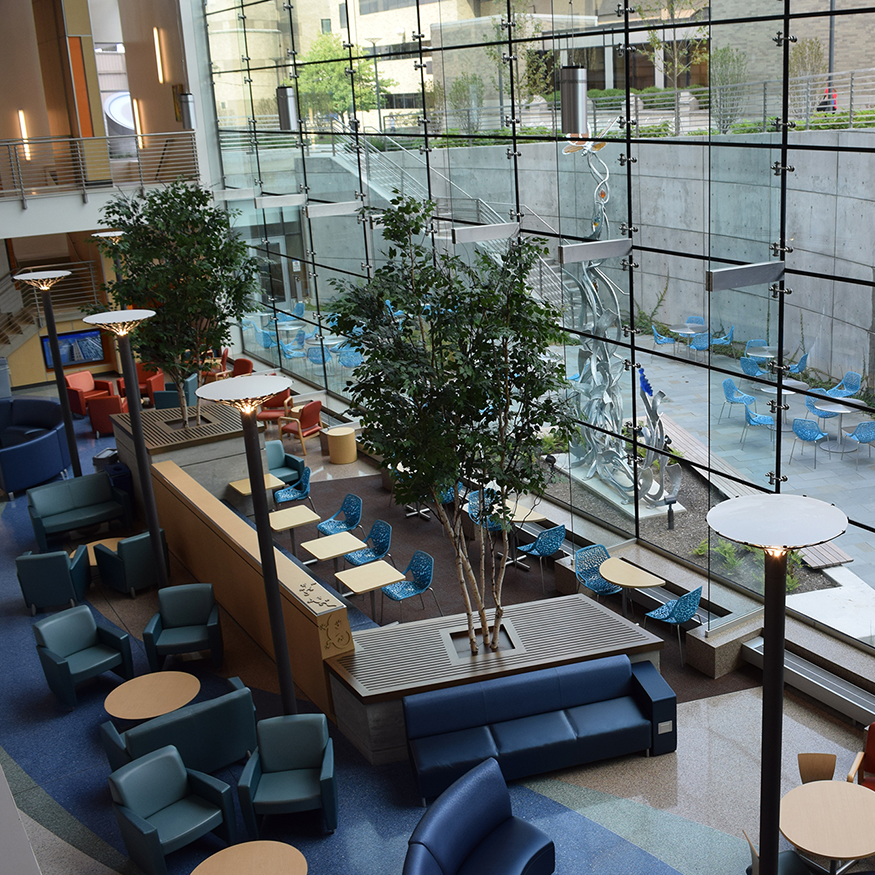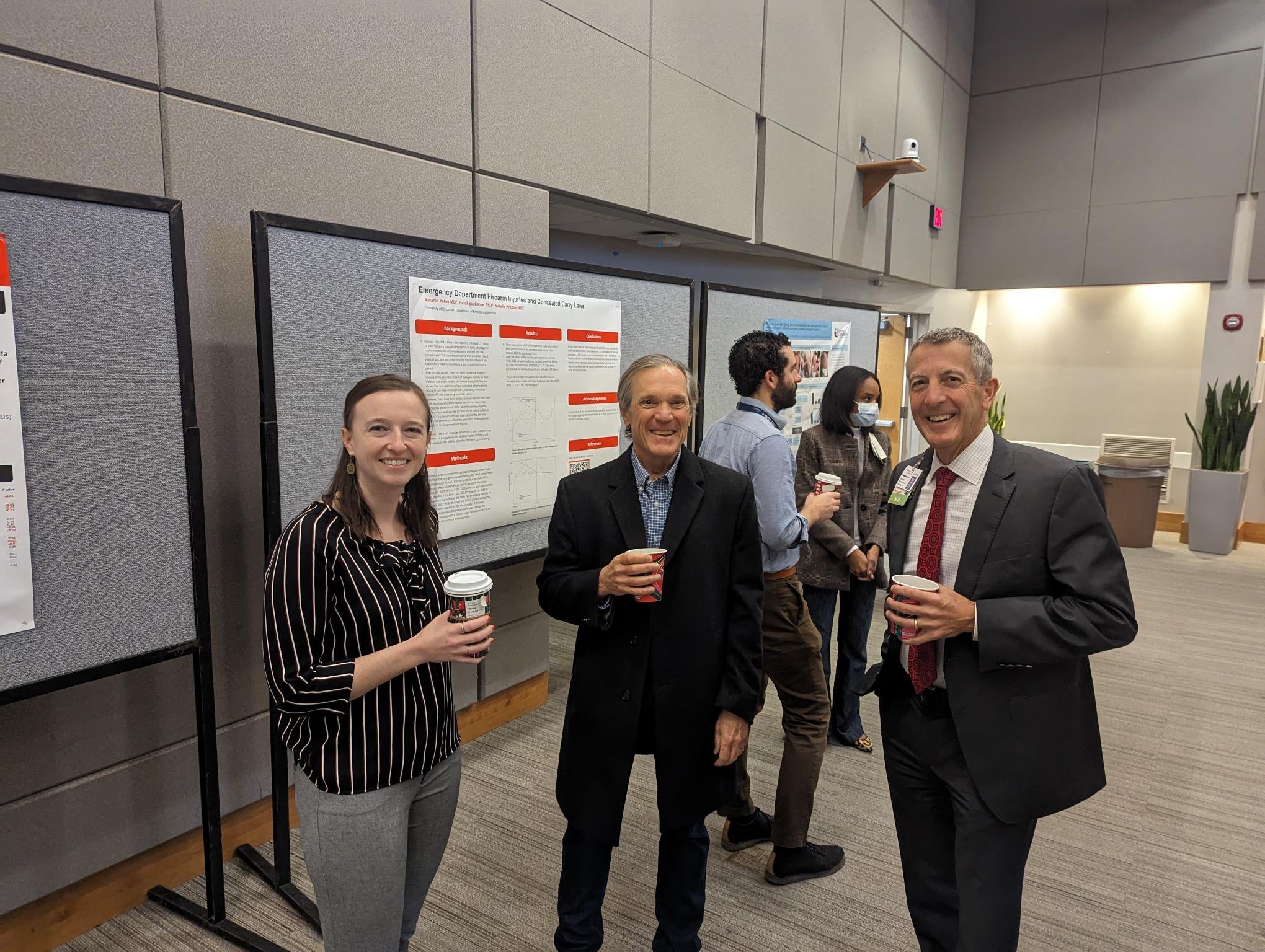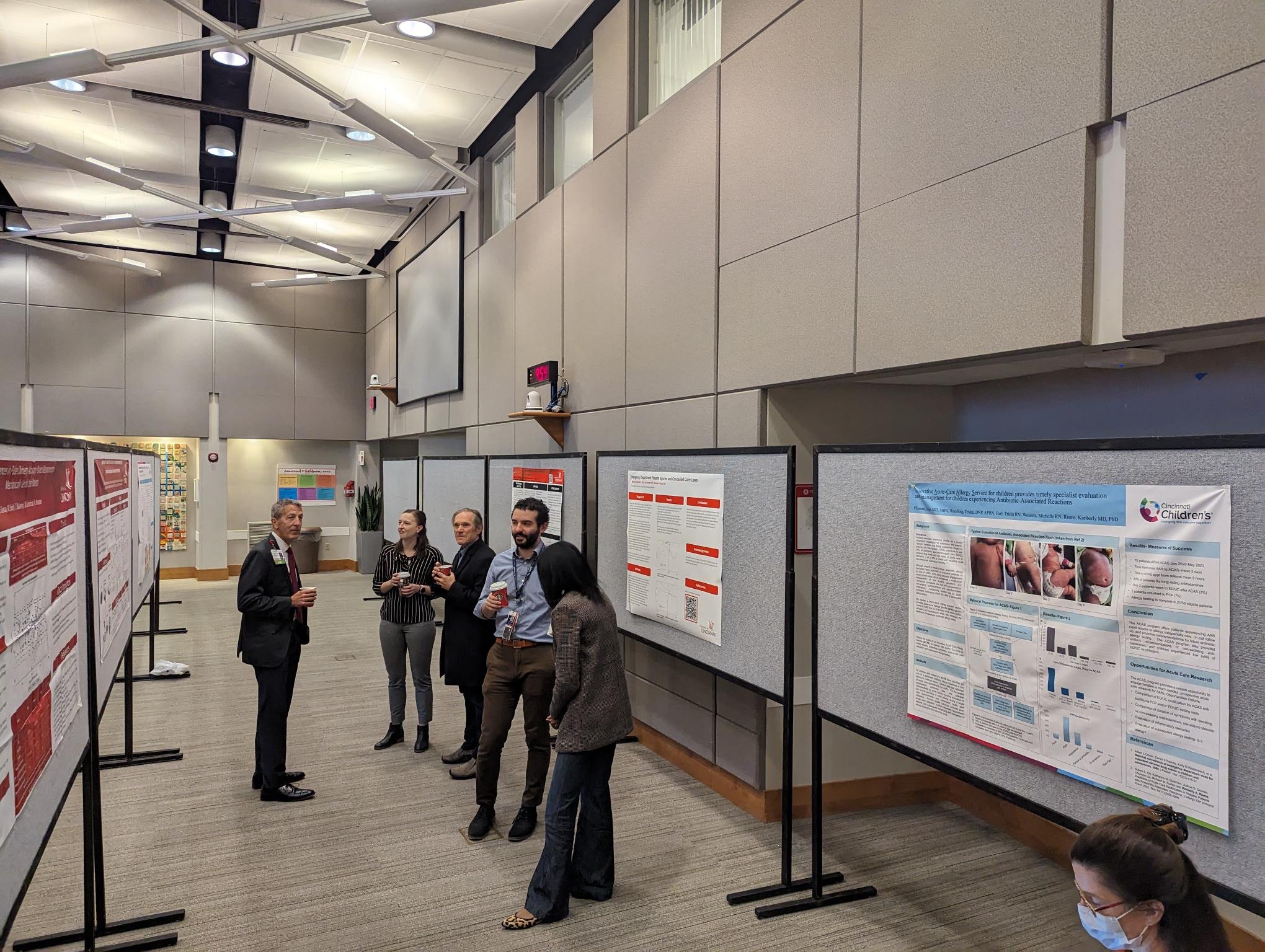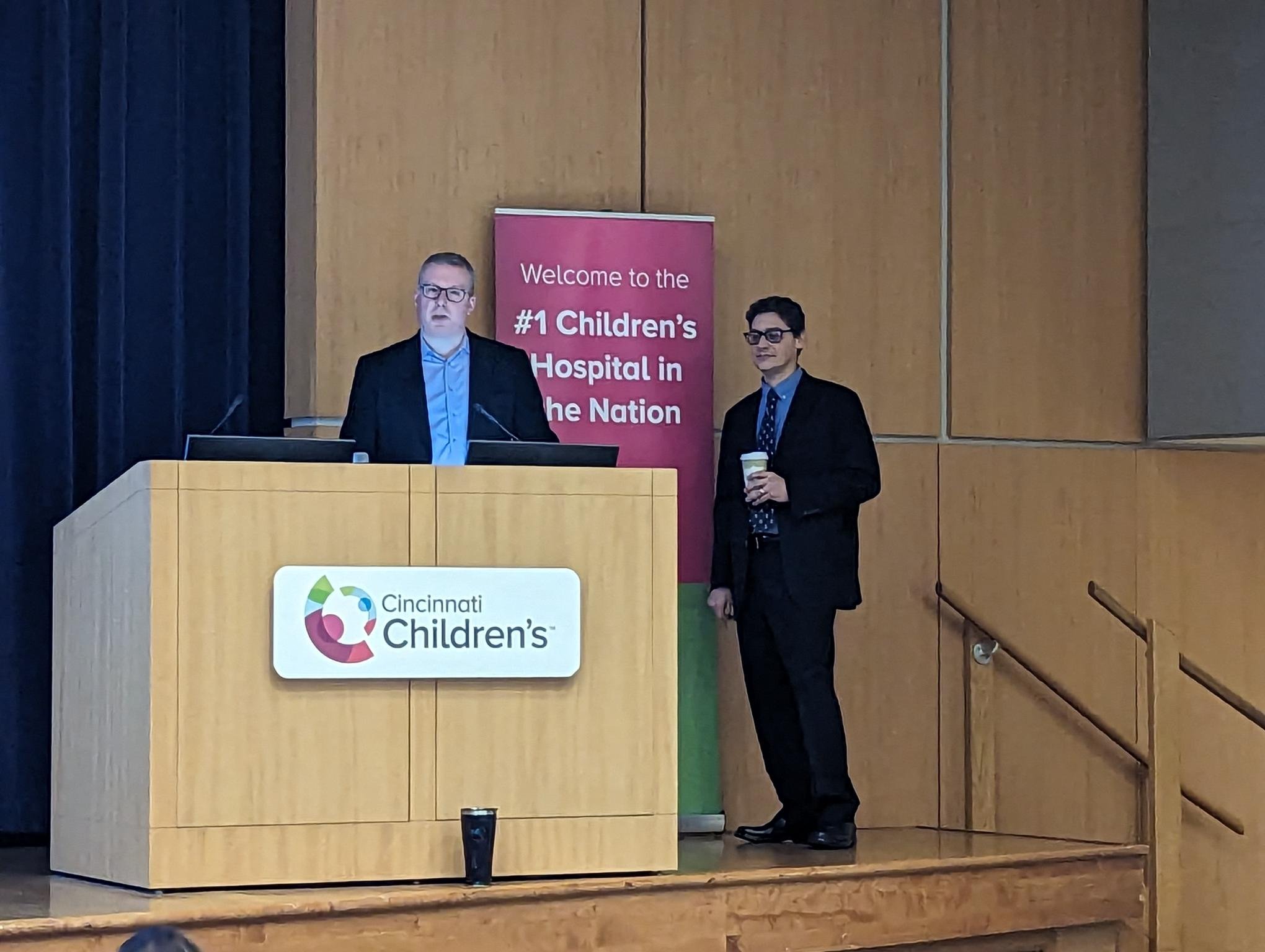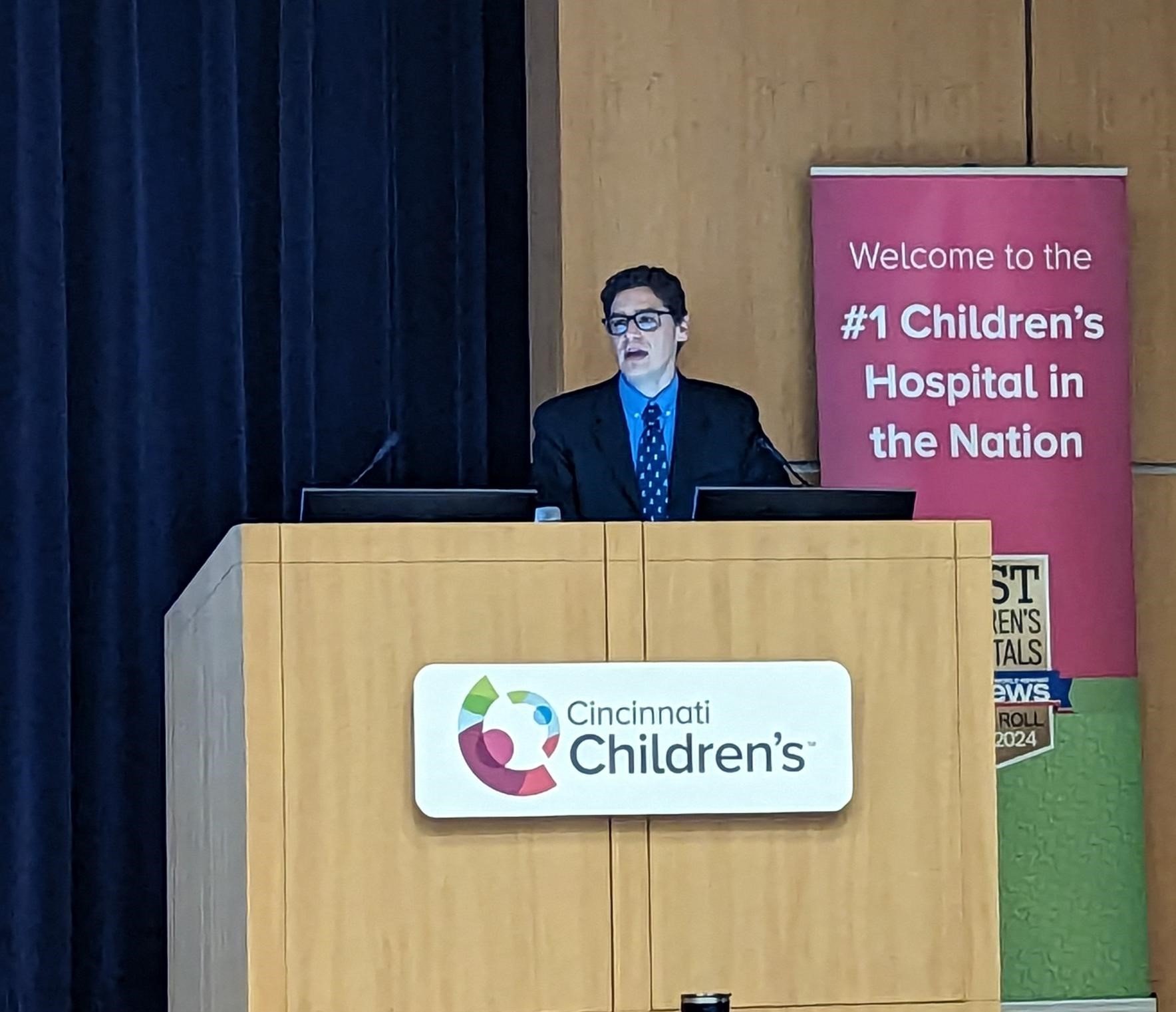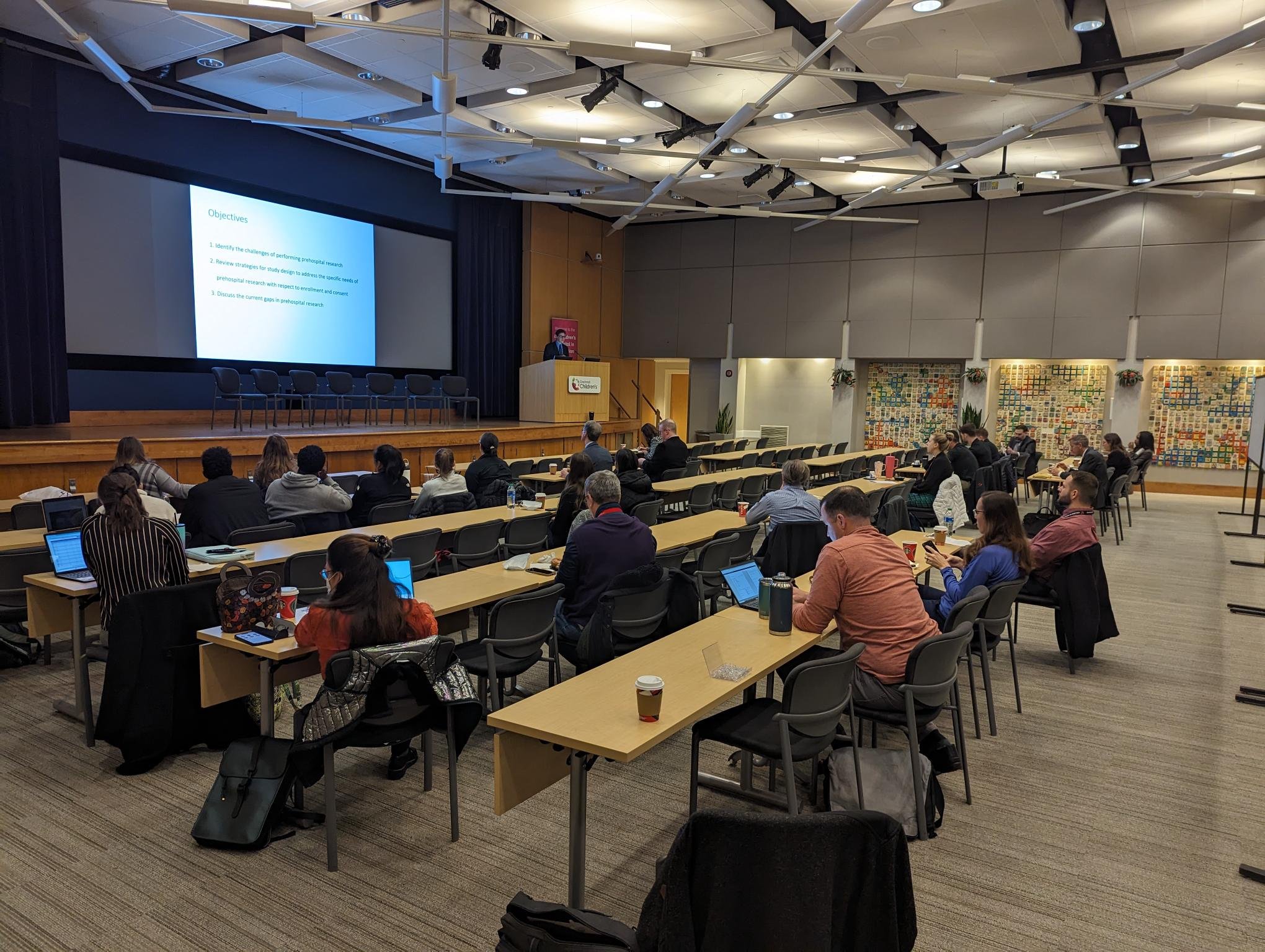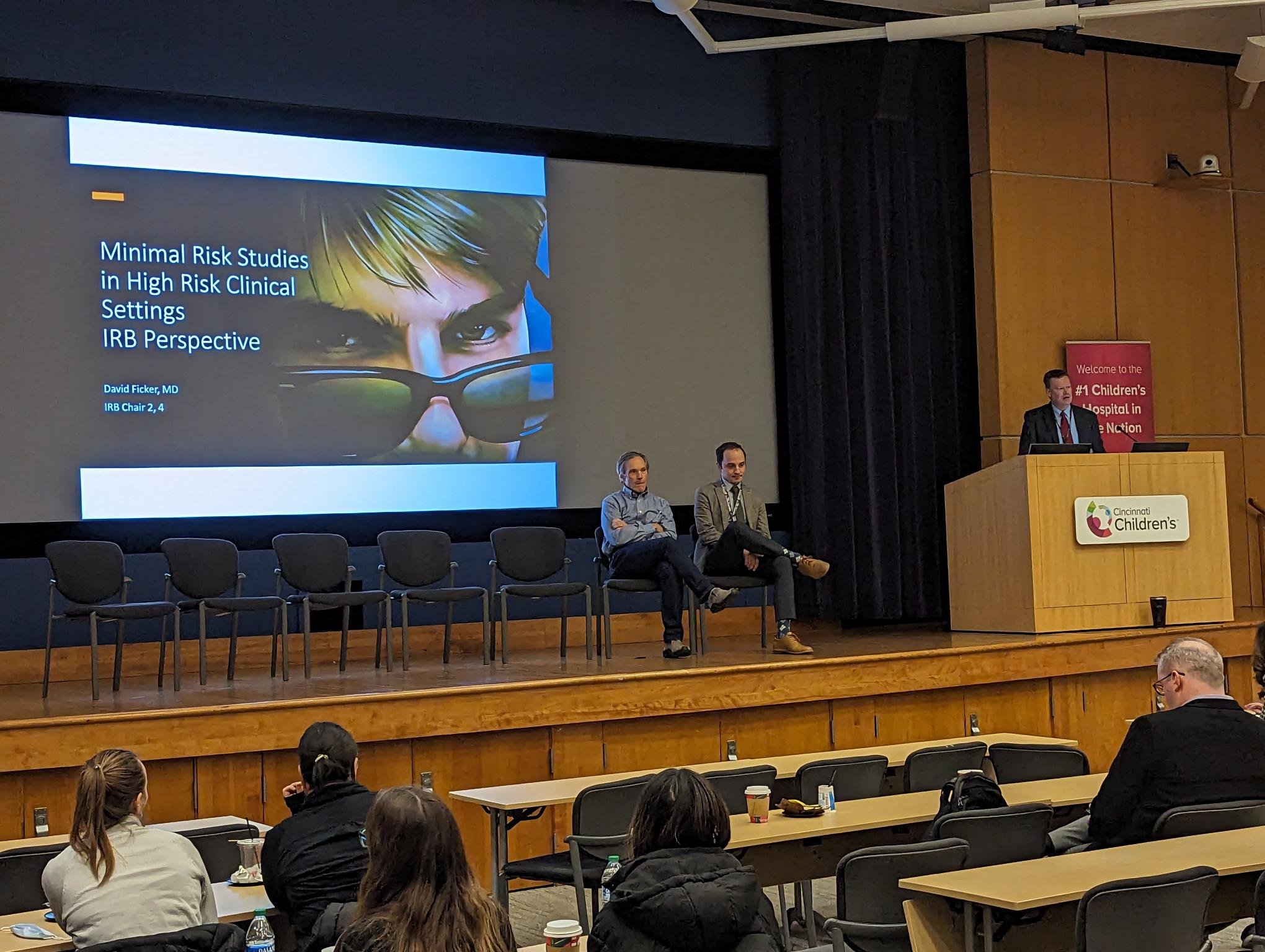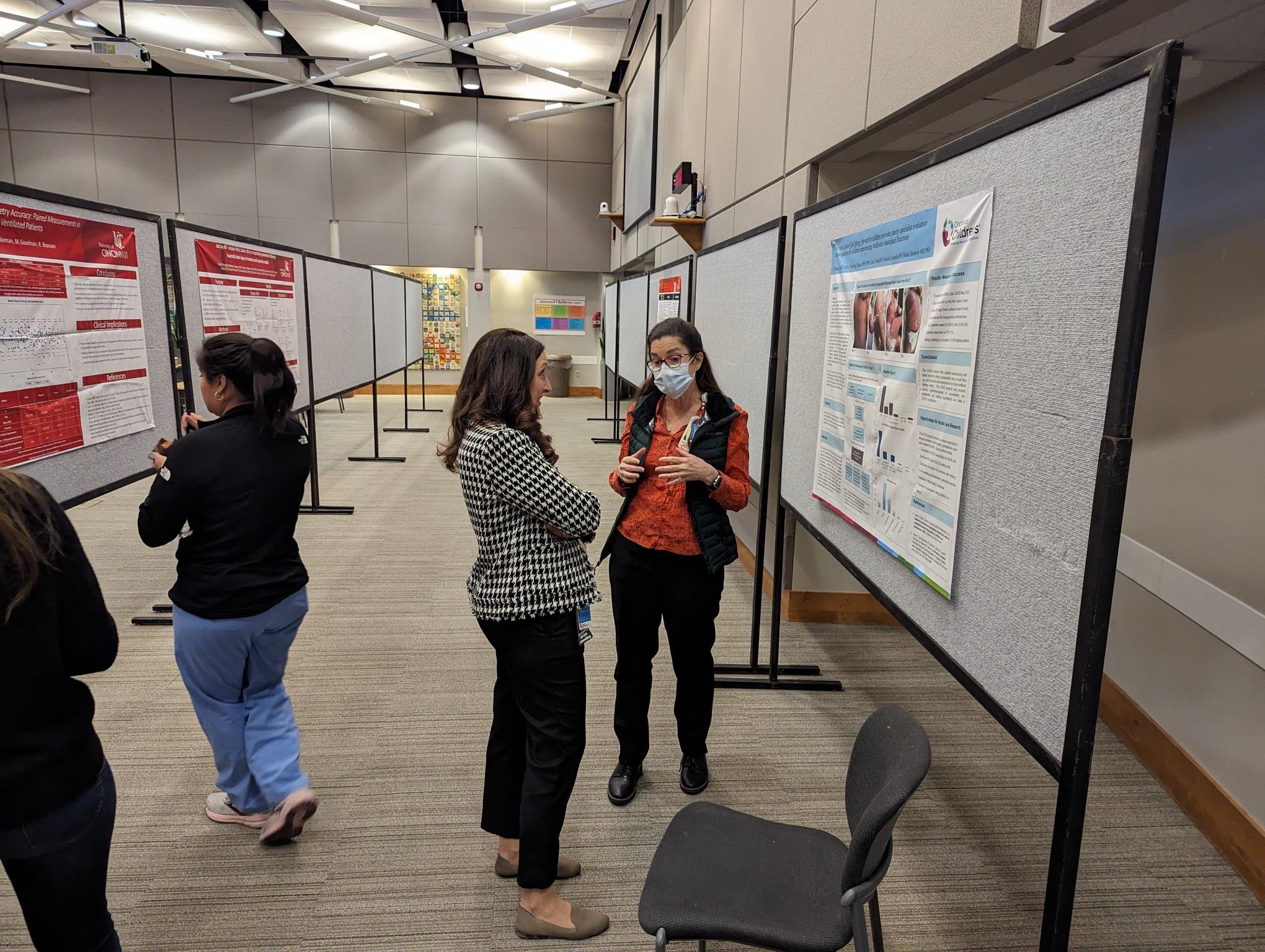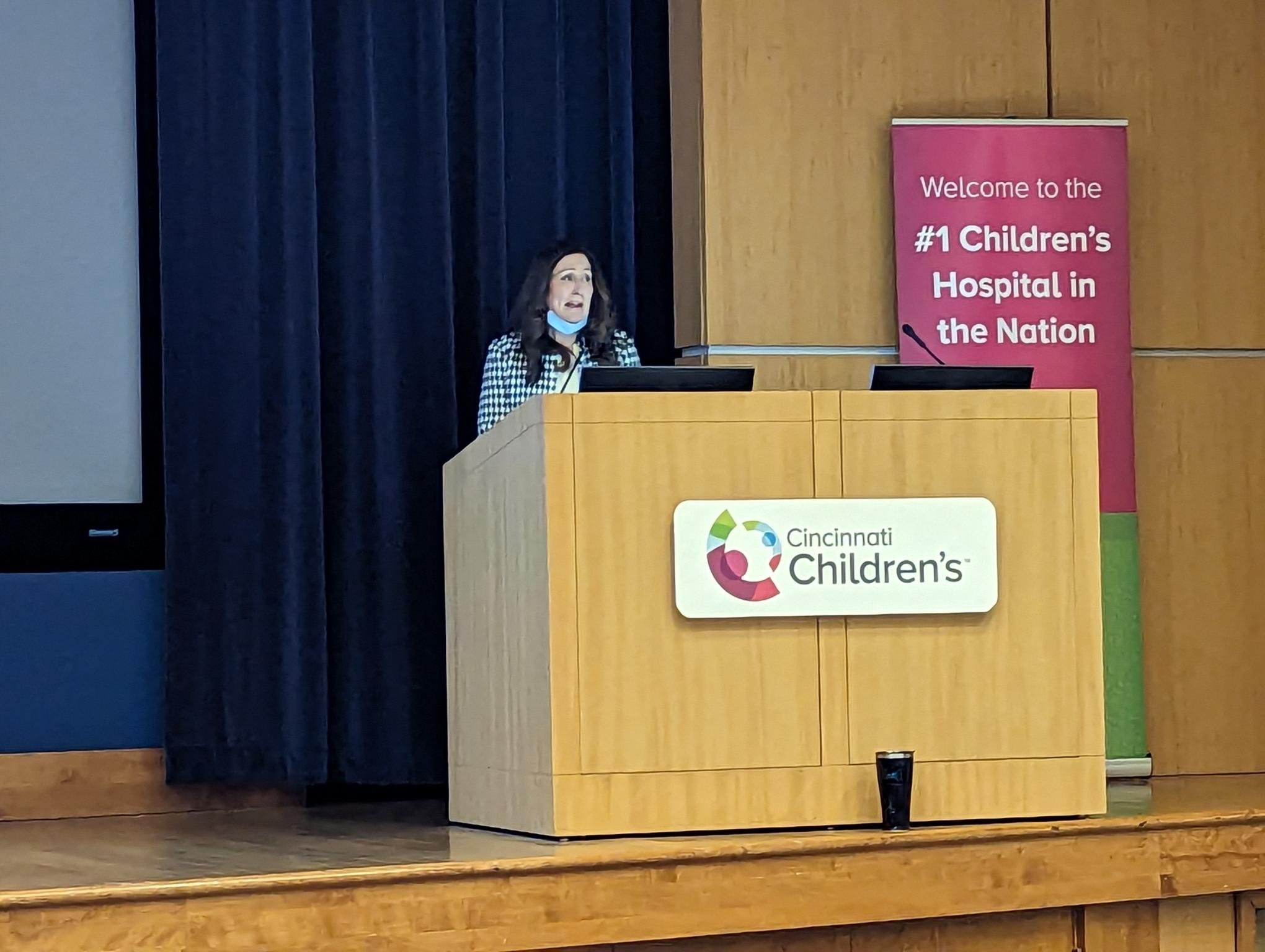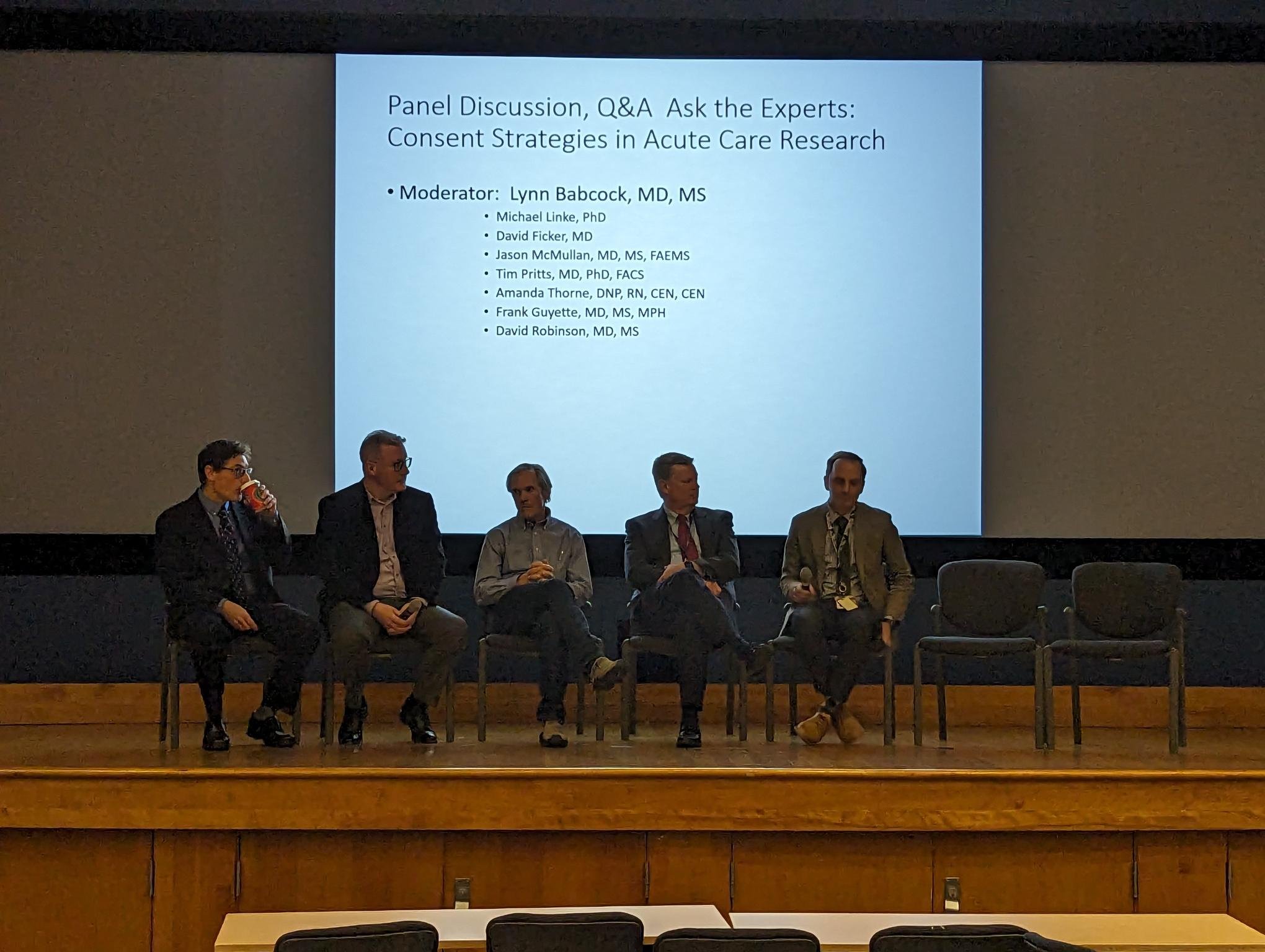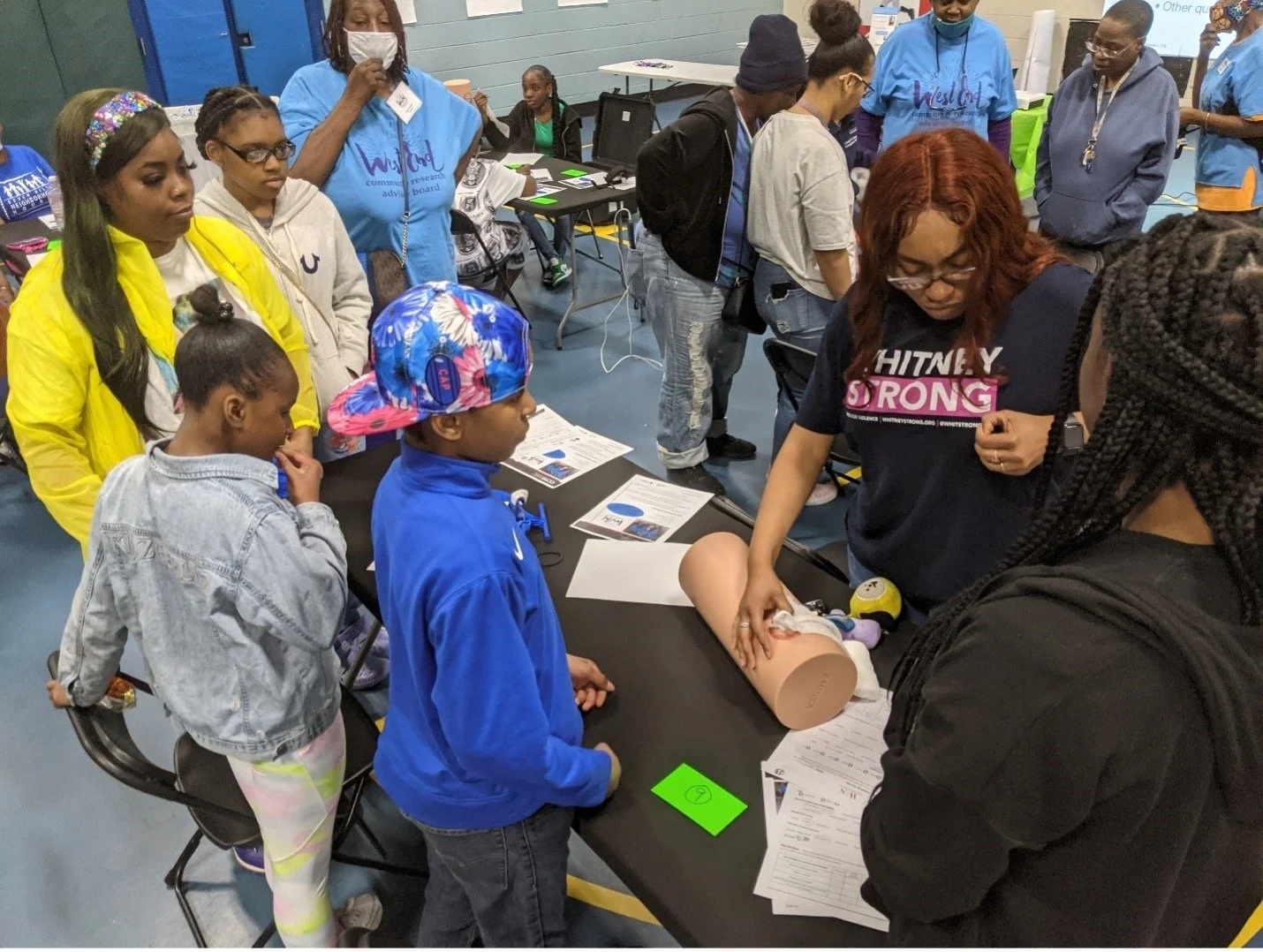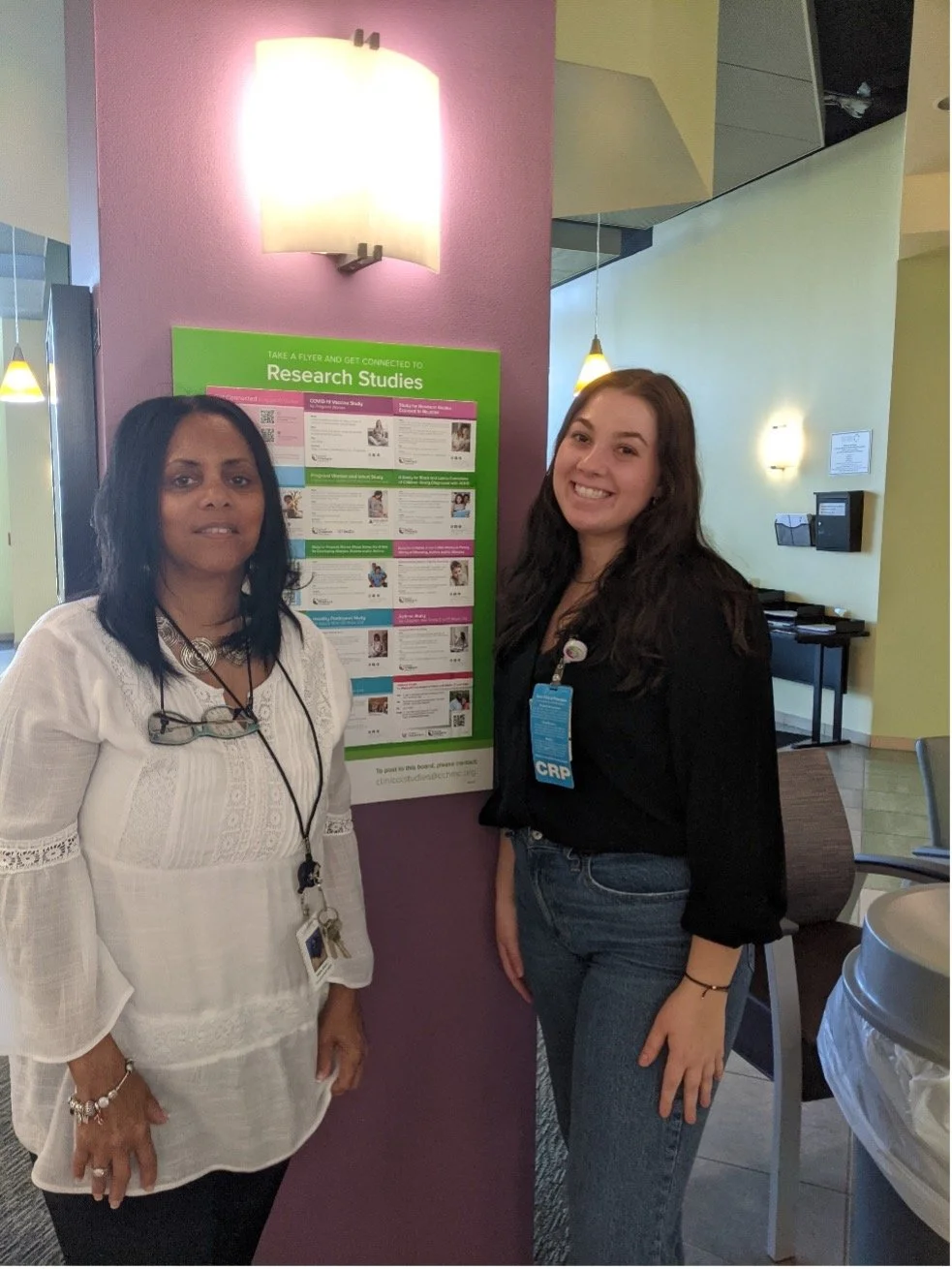Jareen Meinzen-Derr, PhD receiving ACTS Team Science Award
Many members of our CCTST community recently attended the Translational Science 2024 meeting in beautiful Las Vegas! Teams from Clinical and Translational Science Awards from across the U.S. were represented. The meeting brings together trainees, faculty and staff at all levels to teach and learn about clinical and translational science, with a focus on innovating to increase equity across clinical research and translational science. We are very proud that our own Dr. Jareen Meinzen-Derr was Co-Chair of the meeting. Dr. Meinzen-Derr also received the prestigious Team Science Award from the Association for Clinical and Translational Science.
A remarkable 11 CCTST members were first authors on posters presented on cutting-edge topics at the meeting, including Drs. Ishita Basu, Jason Blackard, Lori Crosby, Jackie Knapke, Jack Kues, Angela Mendell, and Jeff Strawn, and Ms. Stacey Gomes, Holly Flake and Erin Kingsley. Many others served as co-authors on posters.
Ishita Basu, PhD
Jackie Knapke, PhD
Holly Flake & Erin Kingsley, MPH
Jeff Strawn, MD
Jason Blackard, PhD
Lori Crosby, PsyD
Stacey Gomes, MS
Jack Kues, PhD
Angela Mendell
Meg Zeller, PhD with K Scholars: Alex Corley, MD, Meera Kotagal, MD & Ishita Basu, PhD
Jessica Kahn, MD & Alex Corley, MD
CTST members also presented in workshops and panel discussions. Drs. Jessica Kahn, Lori Crosby, and Meinzen-Derr presented a workshop titled, “Strategies for successfully implementing a faculty diversity, equity, and inclusion plan using CQI principles” and Dr. Meinzen-Derr presented on, “The Art of Equity in Recommendation Letters,” “Tranlsational Science and Strenghtneing Partnerships,” and “Inclusion with Equity: Safeguarding Safe Spaces.” Drs. Crosby and Meinzen-Derr presented on, “Improving Data Equity Throughout the Research Process.” Angela Mendell presented on, “Fostering Transformative Growth in the Clinical Research Workforce through the SIG Brain Trust.”
Ishita Basu, PhD presenting at the Three Minute Thesis (3MT®) Competition
We are also extremely proud of our K Scholars Drs. Ishita Basu and Alex Corley, who participated and advanced in the Three Minute Thesis (3MT®) Competition. Both Scholars made it to the semi-final round, with Dr. Corley advancing on to the final competition and winning the Early Career Scholar competition award!
Alex Corley, MD receiving the Early Career Scholar award at the Three Minute Thesis (3MT®) Competition
Alex Corley, MD & Lori Crosby, PsyD
Alex Corley, MD & Meg Zeller, PhD
Next year the Translational Science meeting will be held in Washington, DC from April 15-17.
